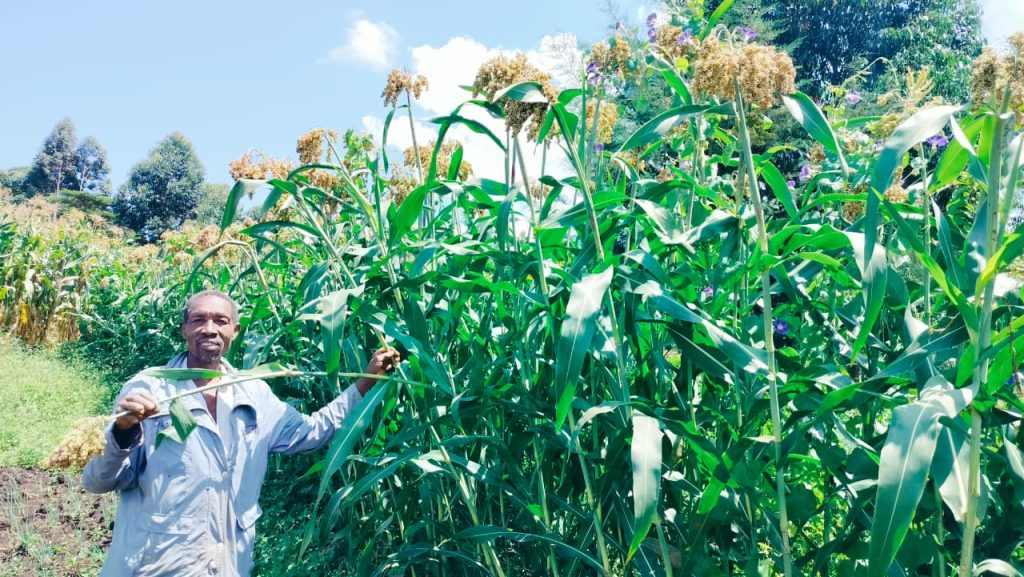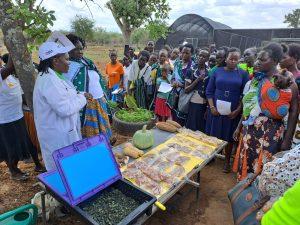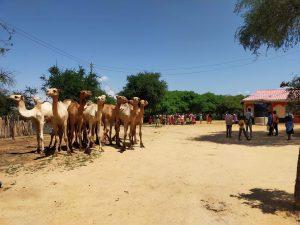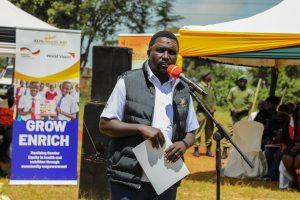On the green hills of Tindiret, Nandi County, a small farm is quietly making a big impact. Here, amidst rows of thriving crops and the gentle rustle of Nappier grass, you’ll find Mr. John Keino, a farmer who has turned his land into a model of productivity and sustainability. As a member of the Ngatipkong Farmers Group and participant in the Food Security and Climate Change Adaptation (FOSECCA) Project, Mr. Keino has embraced innovative farming methods that not only feed his family but also inspire his community to think differently about agriculture.
The FOSECCA(Food Security and Climate Change Adaptation) Project works with farmers to promote practices that improve food security while helping communities adapt to the changing climate. For Mr. Keino, this has meant embracing food crop diversification, the practice of growing a variety of crops together to ensure a steady supply of food, protect the soil, and increase income opportunities.
Walking through his farm, you are welcomed by a colorful mix of crops: sweet potatoes, cassava, sorghum, spring onions, maize, and assorted vegetables. Each crop serves a unique purpose, some for household consumption, others for sale, and many that can be stored for future use. This diversity means that even if one crop fails due to pests, disease, or weather changes, there are others to rely on.
But Mr. Keino’s innovation goes beyond what is planted in the main fields. Along the terraces of his farm, he has integrated sorghum and Napier grass. This is a simple yet powerful method of soil conservation. The plants act as natural barriers, reducing soil erosion, maintaining soil fertility, and helping to retain water during dry spells. The benefits are twofold, the sorghum can be harvested for food, while the Napier grass is a valuable source of livestock feed.
These practices have made Mr. Keino’s farm more resilient to the unpredictable effects of climate change, such as prolonged droughts or sudden heavy rains. By using the land wisely and protecting its fertility, he is ensuring that it can continue to provide for his family for years to come.
Beyond his own household, Mr. Keino’s work is inspiring other farmers in the community. Members of the Ngatipkong Farmers Group regularly visit his farm to learn new techniques, share experiences, and encourage one another to adopt climate-smart practices. His success is proof that small changes can make a big difference, both in improving harvests and in protecting the environment.
Through training, access to information, and community support, farmers like Mr. Keino are equipped with the knowledge and skills to farm smarter, not harder. This approach helps ensure that farming remains a sustainable and profitable way of life, even in the face of climate change challenges.
With more farmers embracing these practices, the vision of food-secure and climate-resilient communities in Tindiret, and beyond, is becoming a reality.





